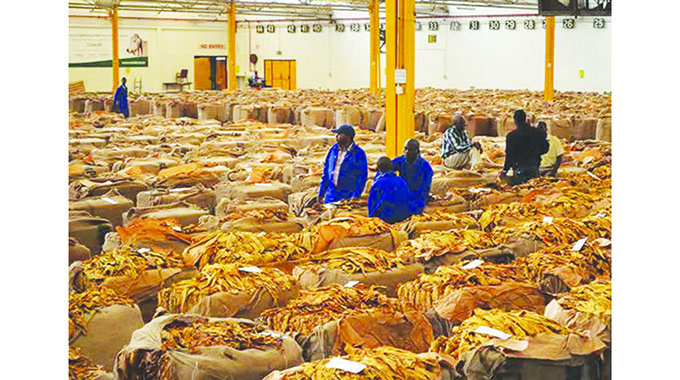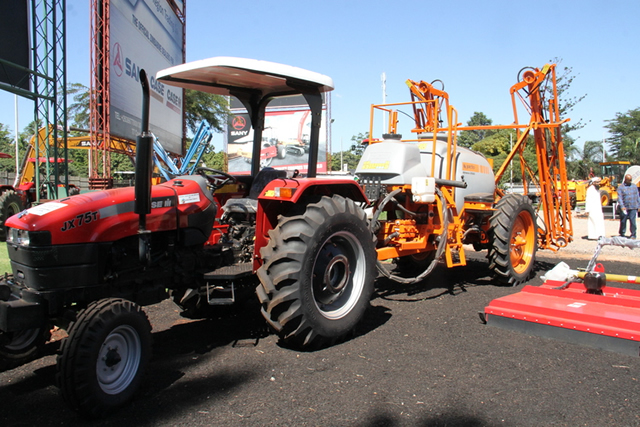Stakeholders anxious as TIMB delays registering contractors

Edgar Vhera
Agriculture Specialist Writer
THE sustainability of the 2022/23 tobacco season is hanging in the balance with the Tobacco Industry and Marketing Board (TIMB) revealing that it has not yet registered contractors to support farmers two months into the season.
TIMB public affairs officer, Mrs Chelesani Tsarwe confirmed the development saying registration of intention to contract for the 2022/23 tobacco season is still ongoing and the deadline is October 31. “To date, 36 contractors have expressed interest in contracting tobacco growers for the 2022/23 season,” she commented.
Mrs Tsarwe said registration was still ongoing. She added that there was a lot of vetting that takes place before a licence is issued with the names of those who were registered only going to be publicised when the time is ready.
At least 95 percent of the country’s tobacco is being produced under contract arrangements.
TIMB is primarily a regulatory and advisory statutory body in terms of the Tobacco Industry and Marketing Act [Chapter 18:20]. The TIMB among other functions, registers tobacco growers, licence tobacco buyers, auction floors and commercial graders.
Contractors are mandated to provide extension services, farming inputs, tillage, harvesting, curing and marketing resources to eligible tobacco growers to grow, harvest and cure tobacco. The contracted tobacco growers will be exclusively contracted to sell their entire unprocessed tobacco crop to the contractor.
On what support package contractors will be expected to give farmers, Mrs Tsarwe said they were still waiting to get the minimum tobacco inputs package agreement signed between TIMB and the contractors before it is made public.
“The compliance administration framework is still internal and will be availed as soon as it has been commissioned.”
Many smallholder farmers have in recent seasons complained of being duped by contractors who do not come up with transparent contracts at the beginning of the season, choosing to inflate input costing at marketing.
Meanwhile, Zimbabwe Farmers Union secretary general Mr Paul Zakariya has commented on the matter saying the role of TIMB was enforcement of the timely provision of the minimum input packages and compliancy by tobacco contractors.
“When TIMB registers contractors, they agree on the minimum input package to supply growers, it is then their onus to supervise, monitor and regulate them. Without adherence to the timely provision of adequate inputs the tobacco industry will not grow,” said Mr Zakariya.
Tobacco Association of Zimbabwe president Mr George Seremwe concurred adding that there had been engagements between all tobacco stakeholders and TIMB on the need for a minimum tobacco input package that contractors are supposed to avail to farmers and on the time frame too.
“Farmers, contractors and TIMB had meetings to come up with a tobacco minimum input package. With nearly 80 percent of the crop being produced by smallholder farmers, it is necessary to assist them in terms of the contracts they sign with contractors and one sure way is through provision of a minimum input package on time,” said Mr Seremwe.
Zimbabwe Commercial Farmers Union (ZCFU) president Dr Shadreck Makombe blamed TIMB as the regulator for the raw deal farmers are getting from contractors.
“Farmers are being short-changed by being given inadequate input packages and insufficient working capital, which is encouraging side marketing. If TIMB has not registered contractors, what are they regulating,” asked Dr Makombe.
The 2022 tobacco marketing season was dogged by challenges of late delivery of inadequate inputs, which were not invoiced on issuance at the start of the season, only to be over-invoiced at marketing time. Some unfortunate growers spent nights at floors waiting to be paid for their delivered tobacco culminating in the suspension of some merchants.
The Government in 2021 came up with the Tobacco Value Chain Transformation Plan (TVCTP), which sought to achieve a US$5 billion industry through localisation of tobacco funding, increased production and productivity and value addition, beneficiation and export of cigarettes.
All these are meant to contribute to gross domestic product (GDP) growth, foreign currency generation, employment creation and raising household incomes pursuant to the Vision 2030 goal of a prosperous and empowered upper middle-income society.








Comments